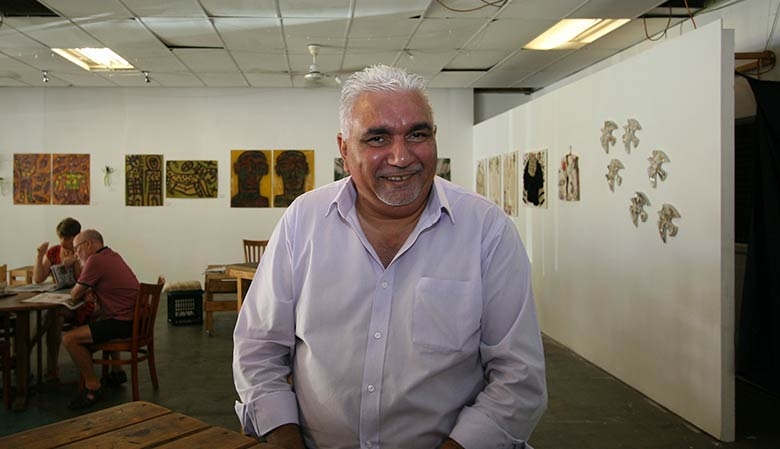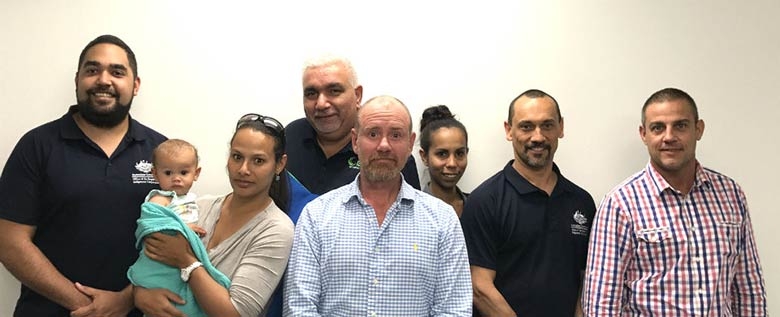No ceiling, no box
Gr8motive is a smart young Aboriginal and Torres Strait Islander Corporation with a new contract to support young offenders to turn their lives around.
Far north Queensland: Gr8motive Aboriginal and Torres Strait Islander Corporation was set up in November 2016 by a small team of directors with a big goal, to cultivate sustainable social and economic growth for Indigenous communities.
The corporation was in an unusually fortunate situation during its fledgling years. Most of the founding directors worked for the ITEC Group, a large, Australian family-owned private enterprise that made a sweet agreement with the new corporation. Gr8motive could draw on the resources of the larger company—for marketing, legal, IT services and so on—allowing it to focus on growing its ‘front of house’ trading until it found its own feet in the marketplace.

Chris Anderson, chair of Gr8motive Aboriginal and Torres Strait Islander Corporation
The vision was that in time, Gr8motive would have a similarly large, diverse—and therefore robust—structure to the incubating company. But from the outset and forever, Gr8motive would be run by Aboriginal and Torres Strait Islander people, with a clear Indigenous approach, for the long-term benefit of Aboriginal and Torres Strait Islander communities. This remains a shared focus for the collaboration between Gr8Motive and ITEC Group.
As well as being keen to draw on the broadest possible knowledge and experience, the corporation was careful to plan its growth and sustainability. Chairperson Chris Anderson says:
I didn’t want us to limit our thinking. There is no ceiling, and I threw the box away many years ago. We’re thinking about how to bring in the next generation, educating, empowering, creating opportunities for young Indigenous people. I don’t want to keep chasing the funding, so we’re looking at doing some entrepreneurial thinking. How do we create change for the better?
The talk is big, but the plans are sharply focused. Building on relationships it already had with communities in Weipa, the Torres Strait, Cooktown, Doomadgee, Tennant Creek, Katherine and Alice, initially Gr8motive concentrated on bringing Indigenous people into the National Disability Insurance Scheme (NDIS) and providing coordinated support for job-seekers.
Now, the corporation has won a competitive tender worth $1.5 million over three years, to run the Townsville-based on-Country program for high-risk young offenders. Groups of children aged ten to seventeen will spend eight weeks on a rural property, supervised by elders and traditional land owners. The Australian Defence Force may also provide survival training. Referrals to the program will come from police or the courts.
At every step, Gr8motive aims for best-practice governance. The directors are already skilled in business planning and operations, and they have made good use of ORIC’s governance training.

ORIC regional staff with the founding board of Gr8motive
(A key takeaway from the training for this corporation given their circumstances was the value of independent directors and partnerships—and the corporation has since appointed two independent directors to the board, expanding the skill, gender and geographical coverage of its membership. The idea is to maintain the highest standards of cultural representation along with the traditional business measures:
From the outset we were involved with a 25-year-old $100 million group, so general business compliance is familiar. However we’re like the younger sibling on this journey, with a sharper focus on Indigenous people and closing the gap. We want to ensure that we maintain all the standard business quality measures such as fiscal compliance, company reporting, etc—though this is done with a cultural lens ensuring we maintain our cultural fluency. We want to make sure that we make a difference to the individual wherever and however we interface with them.
This is a corporation with no ceiling and no box, a network of connections and partnerships, and a clear way to make a positive intervention in young lives. It will contribute to long-term sustainable economic growth for Indigenous people—and shows how non-government organisations can support Closing the Gap initiatives with all tiers of government, and regardless of political persuasion.